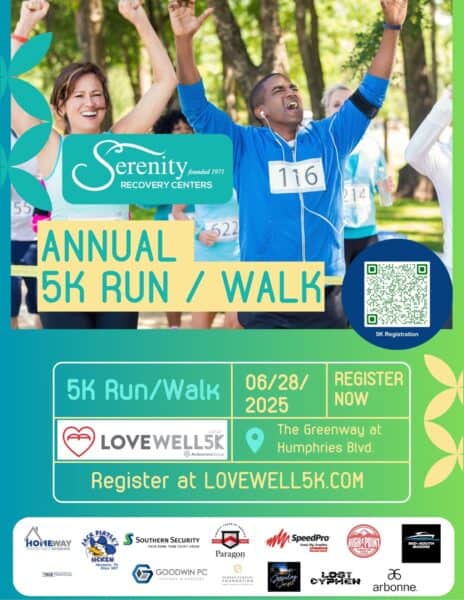Understanding and treating dual diagnosis – the co-occurrence of mental health disorders and substance use disorders – is one of the most critical challenges in modern behavioral healthcare. At Serenity Recovery Centers, we recognize that these intertwined conditions require an integrated, comprehensive approach to treatment for the best possible outcomes.
What is Dual Diagnosis?
Dual diagnosis, also known as co-occurring disorders, occurs when an individual experiences both a mental health disorder and a substance use disorder simultaneously. These conditions often interact with and exacerbate each other, creating a complex cycle that can be challenging to break without professional intervention.
Common Co-occurring Disorders
Several mental health conditions frequently co-occur with substance use disorders:
Depression and alcohol use disorder
Anxiety disorders and prescription drug dependence
PTSD and opioid addiction
Bipolar disorder and stimulant use
ADHD and marijuana dependence
The Chicken or the Egg: Understanding the Relationship
One of the most challenging aspects of dual diagnosis is determining which condition developed first. Some individuals may turn to substances to self-medicate their mental health symptoms, while others may develop mental health issues as a result of their substance use. Understanding this relationship is crucial for effective treatment.
Why Integrated Treatment Matters
Traditional approaches that treat mental health and addiction separately often fall short. Integrated treatment addresses both conditions simultaneously, recognizing their interconnected nature. This approach typically includes:
Comprehensive psychological evaluation
Personalized treatment planning
Evidence-based therapeutic interventions
Medication management when appropriate
Family education and support
Ongoing aftercare planning
The Role of Therapy in Dual Diagnosis Treatment
Various therapeutic approaches have proven effective in treating co-occurring disorders:
Cognitive Behavioral Therapy (CBT) helps individuals identify and change harmful thought patterns and behaviors related to both their mental health and substance use.
Dialectical Behavior Therapy (DBT) teaches mindfulness, emotional regulation, and interpersonal effectiveness skills crucial for recovery.
Group Therapy provides peer support and shared learning experiences, helping individuals understand they’re not alone in their struggles.
Medication Management Considerations
Medication can play a vital role in dual diagnosis treatment, but it requires careful management. Practitioners must consider:
Potential interactions between psychiatric medications and substances
Risk of medication abuse
The impact of medications on recovery
Individual response and adjustment needs
The Importance of Support Systems
Recovery from dual diagnosis requires a strong support system. This includes:
Family and friends who understand the recovery process
Professional healthcare providers
Peer support groups
Community resources
Challenges in Recovery
Individuals with dual diagnosis often face unique challenges:
Higher risk of relapse
More severe symptoms
Greater difficulty maintaining treatment compliance
Increased social and occupational problems
Prevention and Early Intervention
Early recognition and intervention can significantly improve outcomes. Warning signs to watch for include:
Sudden changes in behavior or mood
Withdrawal from social activities
Unexplained physical symptoms
Changes in sleep or eating patterns
Difficulty maintaining responsibilities
The Path Forward
Recovery from dual diagnosis is possible with the right treatment and support. Success often depends on:
Commitment to both mental health and addiction recovery
Consistent engagement with treatment programs
Development of healthy coping mechanisms
Building a strong support network
Our Commitment to Your Journey
At Serenity Recovery Centers, we understand that every individual’s journey with dual diagnosis is unique. Our experienced team of professionals is committed to providing comprehensive, integrated treatment that addresses both mental health and substance use disorders. We believe in creating personalized treatment plans that give our clients the best possible chance at lasting recovery. If you or someone you love is struggling with co-occurring disorders, remember that help is available. Contact us today to learn more about our dual diagnosis treatment programs and take the first step toward healing.
